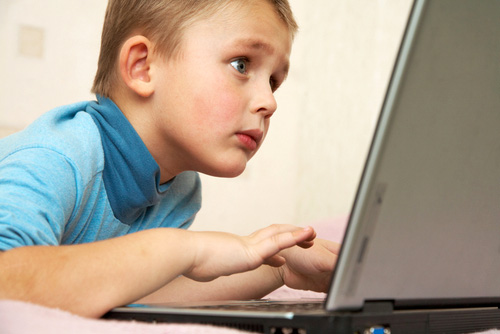How screens turn kids into psychotic junkies
 New York Times 27 August 2016
New York Times 27 August 2016
Family First Comment: A must-read for all parents..
“Many parents intuitively understand that ubiquitous glowing screens are having a negative effect on kids. We see the aggressive temper tantrums when the devices are taken away and the wandering attention spans when children are not perpetually stimulated by their hyper-arousing devices. Worse, we see children who become bored, apathetic, uninteresting and uninterested when not plugged in.
But it’s even worse than we think….”
There’s a reason that the most tech-cautious parents are tech designers and engineers. Steve Jobs was a notoriously low-tech parent. Silicon Valley tech executives and engineers enroll their kids in no-tech Waldorf Schools. Google founders Sergey Brin and Larry Page went to no-tech Montessori Schools, as did Amazon creator Jeff Bezos and Wikipedia founder Jimmy Wales.
Many parents intuitively understand that ubiquitous glowing screens are having a negative effect on kids. We see the aggressive temper tantrums when the devices are taken away and the wandering attention spans when children are not perpetually stimulated by their hyper-arousing devices. Worse, we see children who become bored, apathetic, uninteresting and uninterested when not plugged in.
But it’s even worse than we think.
We now know that those iPads, smartphones and Xboxes are a form of digital drug. Recent brain imaging research is showing that they affect the brain’s frontal cortex — which controls executive functioning, including impulse control — in exactly the same way that cocaine does. Technology is so hyper-arousing that it raises dopamine levels — the feel-good neurotransmitter most involved in the addiction dynamic — as much as sex.
This addictive effect is why Dr. Peter Whybrow, director of neuroscience at UCLA, calls screens “electronic cocaine” and Chinese researchers call them “digital heroin.” In fact, Dr. Andrew Doan, the head of addiction research for the Pentagon and the US Navy — who has been researching video game addiction — calls video games and screen technologies “digital pharmakeia” (Greek for drug).
That’s right — your kid’s brain on Minecraft looks like a brain on drugs. No wonder we have a hard time peeling kids from their screens and find our little ones agitated when their screen time is interrupted. In addition, hundreds of clinical studies show that screens increase depression, anxiety and aggression and can even lead to psychotic-like features where the video gamer loses touch with reality.
In my clinical work with over 1,000 teens over the past 15 years, I have found the old axiom of “An ounce of prevention is worth a pound of cure” to be especially true when it comes to tech addiction. Once a kid has crossed the line into true tech addiction, treatment can be very difficult. Indeed, I have found it easier to treat heroin and crystal meth addicts than lost-in-the-matrix video gamers or Facebook-dependent social media addicts.
According to a 2013 Policy Statement by the American Academy of Pediatrics, 8- to 10 year-olds spend 8 hours a day with various digital media while teenagers spend 11 hours in front of screens. One in three kids are using tablets or smartphones before they can talk. Meanwhile, the handbook of “Internet Addiction” by Dr. Kimberly Young states that 18 percent of college-age internet users in the US suffer from tech addiction.
Once a person crosses over the line into full-blown addiction — drug, digital or otherwise — they need to detox before any other kind of therapy can have any chance of being effective. With tech, that means a full digital detox — no computers, no smartphones, no tablets. The extreme digital detox even eliminates television. The prescribed amount of time is four to six weeks; that’s the amount of time that is usually required for a hyper-aroused nervous system to reset itself. But that’s no easy task in our current tech-filled society where screens are ubiquitous. A person can live without drugs or alcohol; with tech addiction, digital temptations are everywhere.
READ MORE: http://nypost.com/2016/08/27/its-digital-heroin-how-screens-turn-kids-into-psychotic-junkies/







